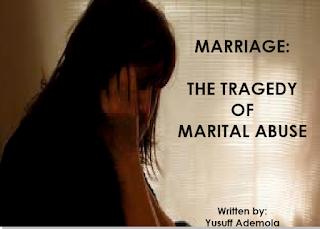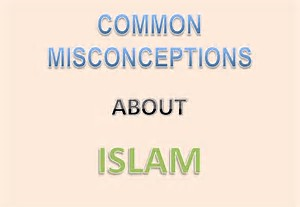TAPPING FROM THE BENEFITS OF SUKUK
Authored by Sherif Olanrewaju T.
SUKUK BOND: TAPPING FROM THE OPPORTUNITIES IT OFFERS
Once again, Nigerians, especially those whose knowledge are scanty about the array of solutions inherent in the issuance of sukuk bond to the Nigerian capital market, are chanting divisive rhetoric without due consideration for how the socio-economic challenges bedeviling the country can be resolved with it. The ranting has adequately opened the door of opportunities for those who are informed to provide explanations on how the Islamic model seeks to answer our economic questions.
What is sukuk bond? Linguistically, sukuk means ‘certificate.’ According to the rules and regulations of the Securities and Exchange Commission 2013, sukuk connotes ‘investment certificates or notes of equal value which evidences undivided interest/ ownership of tangible assets, usufructs and services or investment in the assets of particular projects or special investment activity using Shariah principles and concepts and approved by the SEC’ (an equity agency of the Federal Government of Nigeria). What is clear is that like any other bond, sukuk is strictly for financial deepening in spite of its nomenclature. The point of departure therefore is that, while sukuk operates within the purview of ‘ethical’ investment, others do not.
The announcement of the issuance of N100 billion sukuk bond attracted public criticisms, especially from the Christian Association of Nigeria. This is not unexpected as the religious pressure group has been anti-Islamic since its inception. For instance, it (CAN) fulminated the federal government of taking clandestine steps towards the Islamisation of Nigeria. This accusation does not hold water as there are many non-Muslim countries that have embraced the economic opportunities offered by sukuk bond. Countries such as Britain, the first outside the Islamic world to issue sovereign sukuk in 2014, Germany, Russia, China, France, Japan, South Africa and Tanzania etc. have been benefitting from its issuance. Yet, they have not been Islamised. As such, they operate the bond without debasing the framework of their official laws.
What are the opportunities observed by these countries before they keyed into sukuk? Can Nigeria also leverage on same or be distracted by baseless criticism and watch its economy plunge back into, perhaps irreversible, recession? No doubt, there is a vista of hope for the Nigerian economy if the Islamic model is embraced.
According to the FGN, ‘sukuk is part of our programme to deepen financial market. Interestingly, it predated us. The committee started work in 2011.’ A coterie of economic analysts, after a painstaking scrutiny of the impact of sukuk on the economies that have embraced it, submitted that the step taken by the FGN rather than attract uncouth criticisms, should be applauded as it is a giant stride towards the resuscitation of our comatose economy. Given the economic reality facing the Nigerian state, our concern should be sharply focused on a close monitoring of the funds and its eventual utilization for the project(s) for which it was raised.
The funds would be used to finance the construction of 25 major roads across the six geopolitical zones in the country according to Patience Oniha, the director general of the Debt Management Office. It is interesting to note that the roads marked to be constructed or reconstructed are of high economic importance not only to the states where they are, but also to Nigeria as a whole. Since there is a strong correlation between road investment and economic development, our hope is high that the successful completion of the road projects will invariably facilitate easy access to markets for goods and services.
The potency of sukuk to revive a hitherto recessed economy or one which is at the verge of recession was tested by the World Bank in 2004 when it issued sukuk bond for the development of Acheh (Indonesia) after it was raged by tsunami. The heartwarming outcome of this no doubt spurred the International Bank for Reconstruction and Development(World Bank) to fund researches on what roles Islamic economic models (not only sukuk bond) can play in actualizing the Sustainable Development Goals which gave birth to the paper ‘On the Sustainable Development Goals and the Role of Islamic Finance.’ Hence, Nigeria can follow in the footprints of the global financial institution to accelerate its economic growth and development.
In the wake of Nigeria’s fast rising debt profile, which experts said would rise above N19 trillion by December 2017, Sukuk which stands for a move from debt to equity-based financing discourages the economy from debt accumulation through the conventional financing of projects which has only succeeded in the piling up of both local and international debts. As explained by Yuan Man Lee, a senior economist at World Bank office in Abuja, Nigeria needs to step up its revenue as the current revenue base cannot support or sustain interest payment on debt. Sukuk, therefore, is a debt management strategy adopted by the DMO.
The Asian Development Bank (ADB,2000), and United Nations (UN, 2006), noted quite instructively that giving the poor segment of a society access to a variety of financial services is conducive to poverty reduction. This translates into inclusive finance which, according to Patience Oniha, will allow ‘individuals and other retail investors…to participate in the fixed income market.’ To achieve this, the minimum amount for subscription was pegged at N10, 000 for ease of accessibility by all and sundry. Little wonder then that the offer was over-subscribed by about N6 billion, the DMO stated. This underscores that sukuk is a veritable strategy for fund raising.
One agrees with Emre Balibek when he says that ‘over the last decade, there has been a notable growth of sukuk markets, and the instrument has emerged as a viable asset class, linking sovereign and corporate issuers with a wide pool of investors, not only in the Middle East and Southeast Asia, but all around the world, who are seeking to diversify their holdings beyond traditional assets.’ Nigeria today needs to develop a robust policy measure that will attract foreign investors into its market, and as well encourage local investors for meaningful investment that will rejuvenate her economy. Hence, the introduction of sukuk is an unmistakable economic response in this regard.
Since infrastructural investment is one of the strategies the FG adopts for achieving Nigeria’s Economic Recovery and Growth Plan (2017-2020), and road infrastructure is ultimately tied to economic growth and development, according to development experts, raising funds to execute the plans through an ethical fund raising therefore is a laudable step. As the roads, after completion, will open the door for basic social amenities such as education and health, link different parts of the country, facilitate trade, provide access to markets by farmers, and access to raw materials by manufacturers; they will invariably block the seemingly lucrative business of kidnapping, remove their long-standing label of death trap, and reduce traffic logjam with its attendant psychological consequence of frustration. The issuance of sukuk bond in Nigeria, therefore, is timeous.











Comments
Post a Comment